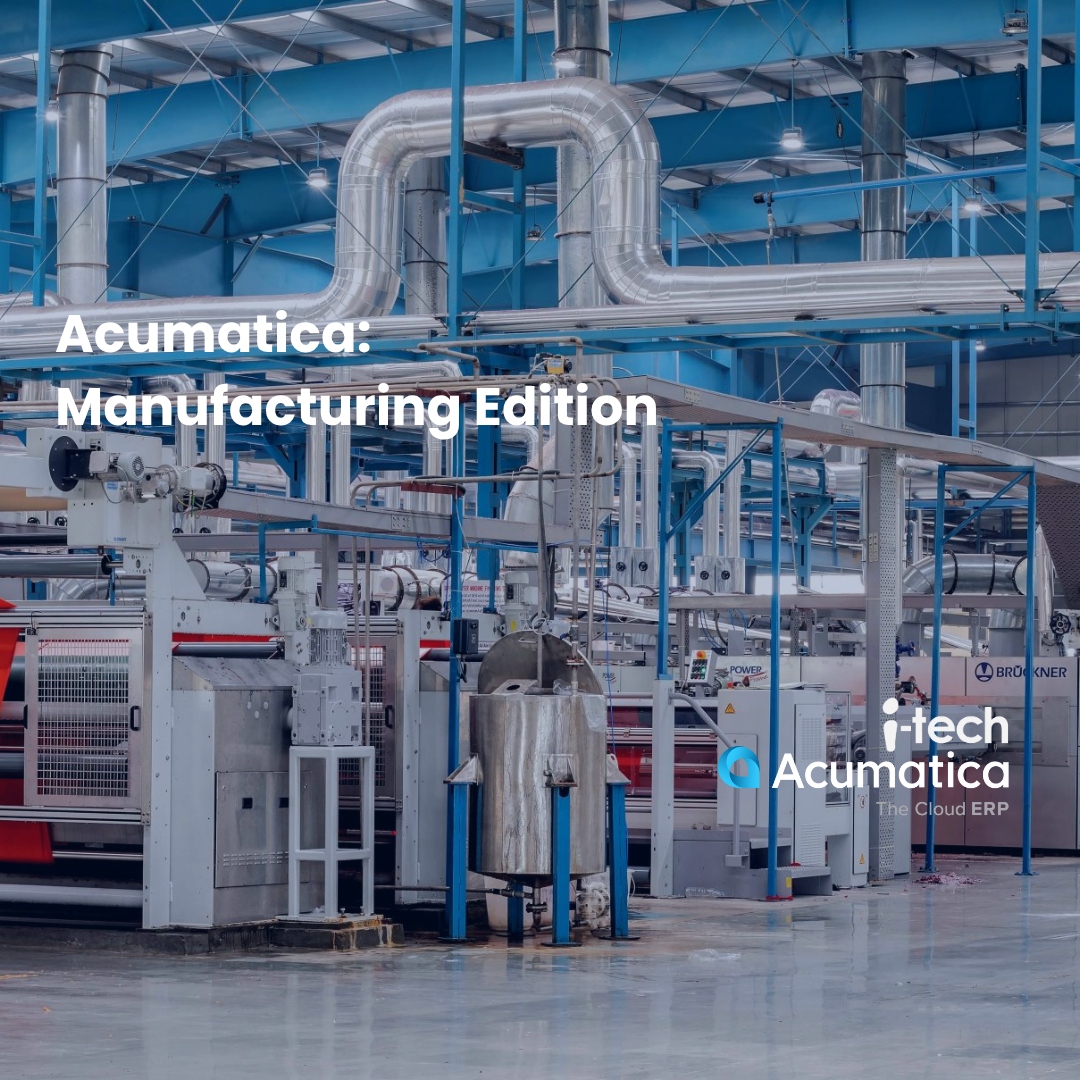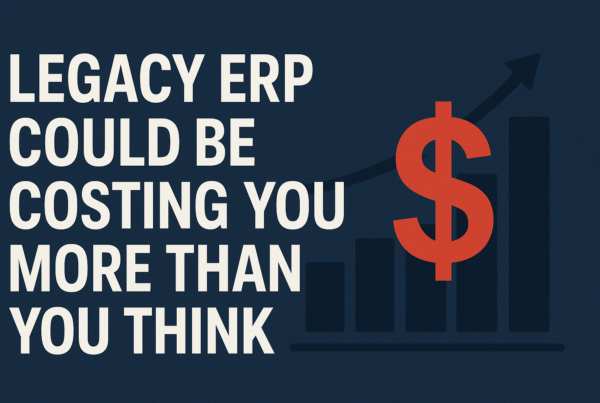In today’s globalized economy, manufacturing businesses face a myriad of challenges, with tariffs being one of the most significant hurdles. Tariffs imposed as taxes on imported goods can disrupt supply chains, increase costs, and reduce profitability. For manufacturers, who often rely on international suppliers and markets, these additional costs can be particularly devastating. However, modern cloud-based ERP (Enterprise Resource Planning) solutions like Acumatica are stepping in to help businesses mitigate these challenges and maintain operational efficiency.
The Tariff Challenge for Manufacturers
Tariffs introduce complexity and uncertainty into manufacturing operations. They can lead to:
- Increased Costs: Higher tariffs mean higher costs for raw materials and components, squeezing profit margins.
- Supply Chain Disruptions: Businesses may need to find alternative suppliers, which can be time-consuming and costly.
- Pricing Pressure: To remain competitive, manufacturers may absorb some of the increased costs, further impacting profitability.
- Compliance Risks: Navigating the ever-changing landscape of tariffs and trade regulations requires meticulous tracking and reporting to avoid penalties.
For many manufacturers, these challenges can be overwhelming, especially for small and mid-sized businesses with limited resources.
How Acumatica Solves Tariff-Related Problems
Acumatica, a cloud-based ERP platform, offers a suite of tools designed to help manufacturing businesses adapt to and overcome tariff-related challenges. Here’s how:
- Real-Time Visibility and Cost Tracking
Acumatica provides real-time visibility into the entire supply chain, allowing manufacturers to track costs at every stage of production. With integrated modules for purchasing, inventory, and production management, businesses can quickly identify how tariffs impact their bottom line. This visibility enables proactive decision-making, such as renegotiating contracts or exploring local suppliers.
- Flexible Supply Chain Management
Acumatica’s supply chain management capabilities allow manufacturers to adapt to tariff changes swiftly. The platform supports multi-entity and multi-location operations, making it easier to diversify suppliers and reduce reliance on regions with high tariffs. Additionally, Acumatica’s advanced analytics help businesses identify cost-effective alternatives and optimize inventory levels to minimize excess spending.
- Compliance and Reporting
Staying compliant with tariff regulations is critical to avoiding fines and penalties. Acumatica’s robust reporting tools ensure that businesses can accurately track and report on tariffs, duties, and taxes. The platform integrates with international trade compliance modules, providing up-to-date information on changing regulations and helping businesses stay ahead of compliance requirements.
- Cost Control and Profitability Analysis
Acumatica’s financial management module offers detailed cost analysis and profitability reporting. Manufacturers can assess the impact of tariffs on specific products or product lines and adjust pricing strategies accordingly. The platform also supports scenario planning, allowing businesses to model different tariff scenarios and prepare for potential outcomes.
- Cloud-Based Accessibility and Scalability
As a cloud-based solution, Acumatica offers unparalleled accessibility and scalability. Manufacturers can access critical data and insights from anywhere, enabling quick responses to tariff changes. The platform’s scalable architecture ensures that businesses can grow and adapt without being constrained by their ERP system.
- Integration with Global Trade Tools
Acumatica integrates seamlessly with third-party applications and tools that specialize in global trade management. This includes solutions for tariff classification, landed cost calculations, and trade compliance. By leveraging these integrations, manufacturers can streamline their operations and reduce the administrative burden of managing tariffs.
Real-World Impact
Manufacturers using Acumatica have reported significant improvements in their ability to manage tariff-related challenges. For example, a mid-sized electronics manufacturer was able to quickly identify suppliers in regions with lower tariffs, reducing their material costs by 15%. Another company used Acumatica’s analytics to adjust their pricing strategy, maintaining profitability despite increased tariffs on key components.
Conclusion
Tariffs are an unavoidable reality in today’s global manufacturing landscape, but they don’t have to spell disaster for businesses. With Acumatica, manufacturers gain the tools and insights needed to navigate tariff challenges effectively. By providing real-time visibility, flexible supply chain management, and robust compliance tools, Acumatica empowers businesses to adapt, optimize, and thrive in an ever-changing trade environment.
In a world where tariffs can shift overnight, having a dynamic and responsive ERP system like Acumatica is not just an advantage—it’s a necessity. For manufacturing businesses looking to stay competitive and resilient, Acumatica is a solution that delivers.








